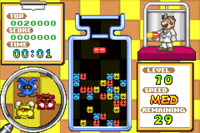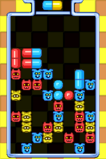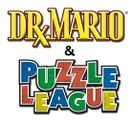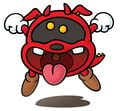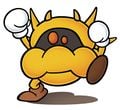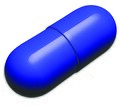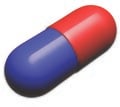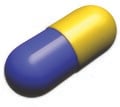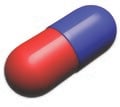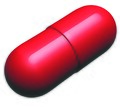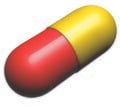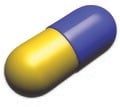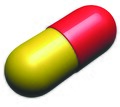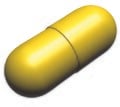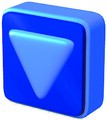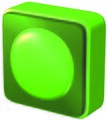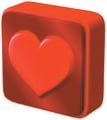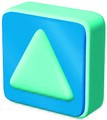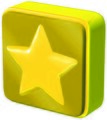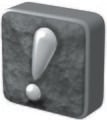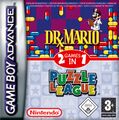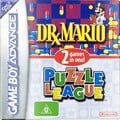Dr. Mario & Puzzle League
| Dr. Mario & Puzzle League | |||
|---|---|---|---|
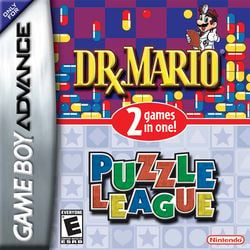
| |||
| Developer | Nintendo SPD Group No.2 Intelligent Systems | ||
| Publisher | Nintendo | ||
| Platform(s) | Game Boy Advance | ||
| Release date | Template:Release | ||
| Language(s) | English (United States) French (France) German Spanish (Spain) Italian Japanese | ||
| Genre | Puzzle | ||
| Rating(s) |
| ||
| Mode(s) | Single player, multiplayer | ||
| Format | Game Boy Advance: | ||
| Input | Game Boy Advance:
| ||
| Serial code(s) | Template:Serials | ||
Dr. Mario & Puzzle League (also formatted as Dr. Mario / Puzzle League),[1] known as Dr. Mario & Panel De Pon in Japan, is a "2 in 1" game for the Game Boy Advance. Dr. Mario is an enhanced remake of the original Dr. Mario, with many of the graphics similar to those of Dr. Mario 64.
Puzzle League's name comes from Pokémon Puzzle League, a game based on Panel de Pon. This version, however, is a very simple form of the game.
Gameplay
Dr. Mario
Dr. Mario mostly resembles the Nintendo 64 version, Dr. Mario 64. Much like the earlier Dr. Mario games, a vitamin match of four or more of the same color in a line (either a row or a column) that include any viruses will be cleared. In the multiplayer modes, if a match of two or more lines are made in a move, up to four garbage (depending on amount of lines cleared) are sent to their opponent, and the colors of the garbage are determined by the lines cleared. Like Dr. Wario, the unlockable minigame from WarioWare, Inc.: Mega Microgame$!, its bottle is 13 cells tall instead of the standard 16. There are three modes in this mode:
- Classic: Clear all the viruses in the bottle. Clearing level 5, 10, 15, or 20 in either Med or High speed will result in a short intermission where the three viruses sit on a tree while something flies over them. The flying objects are the same as found in the original Dr. Mario.
- Vs. CPU: Be the first to eliminate all viruses in the bottle. The player can also win if their opponent's bottle blocked at the top-middle.
- Flash: Be the first to eliminate all three flashing viruses in the bottle, one for each color. The player can also win if their opponent's bottle blocked at the top-middle.
Because of the smaller bottle size in this game, the amount of viruses for each level is different from the rest of the series. The amounts apply to both Classic and Vs. CPU:
| Level | Viruses | Level | Viruses | Level | Viruses | Level | Viruses | Level | Viruses | Level | Viruses | Level | Viruses |
|---|---|---|---|---|---|---|---|---|---|---|---|---|---|
| 0 | 3 | 1 | 5 | 2 | 7 | 3 | 9 | 4 | 11 | 5 | 14 | 6 | 17 |
| 7 | 20 | 8 | 23 | 9 | 26 | 10 | 29 | 11 | 32 | 12 | 35 | 13 | 38 |
| 14 | 41 | 15 | 45 | 16 | 49 | 17 | 53 | 18 | 57 | 19 | 62 | 20+ | 68 |
Puzzle League
Puzzle League is completely changed from the original Panel de Pon. The graphics closely resemble those of the GBA multiboot version from Nintendo Puzzle Collection. There are six modes for this game:
- Marathon: Clear as many block as possible before getting a game over from a block reaching the top.
- Vs. CPU: Compete against a CPU player in one of the three objectives. The CPU's difficulty can be adjusted between a value from 1 to 20, with a higher value making for a more challenging opponent. If one of the player's blocks collide with the top of their field, they will lose, regardless of how well they did against their opponent.
- Vs. Garbage: Clearing combos and chains send garbage blocks to the opponent. Any block that reaches the top will cause the opponent to lose. A handicap can be set for either player, which determines the amount of time the player is given before they lose, should a block reach the top (the higher the percentage, the more time is given for the grace period).
- Vs. Timed: The one who scores the most within a 2 minute time limit wins.
- Vs. Line: The fastest to clear past the line wins.
- Timed: Within 2 minutes, the objective is to obtain the highest possible score.
- Line: Within a limited set of levels, clear blocks until there aren't any more above the line.
- Garbage: Clear as many blocks as possible, similar to Marathon, except garbage blocks occasionally drop from the top.
- Puzzle: Within a limited set of levels, clear all blocks within a limited number of moves. Using a hint will, in addition to being shown the next move, add 5 minutes to the timer. This is the first iteration of the game since the SNES versions to reuse the original set of puzzles.
For all modes except Line and Puzzle, a setting can be set for the speed in which blocks move and disappear, where the slower settings increase the ease in which chains can be mode, whereas the faster settings allows the blocks to be moved and cleared faster. For Line and Puzzle, they instead have a Train mode, where any cleared levels can be played again.
Vertical Mode
Both games have a Vertical Mode that can be unlocked, where one tilts the Game Boy Advance 90° counterclockwise to play, allowing for a higher resolution of the playing field. The controls using the D-pad is changed to account for the different view, while the controls for the other buttons remain the same. To unlock Vertical Mode for each game, the ending must be reached individually, meaning that unlocking for one game doesn't unlock it for the other. For Dr. Mario, this involves beating level 20 in Classic, while for Puzzle League, it involves either reaching a score of at least 10000 in Marathon, completing level 6-5 in Line mode, or completing 6-10 in Puzzle mode. Classic is the only mode available for Dr. Mario, while for Puzzle League, three of the six modes are only available: Marathon, Timed, and Garbage. For Dr. Mario, the only thing in display is the field, meaning that the stage information like the score, the amount of viruses left, and the speed are not shown. However, the stage information is shown in all available modes in Puzzle League.
Multiplayer
Both games have a Single-Pak and Multi-Pak multiplayer mode, and can also be used to upload a demo version to another Game Boy Advance using only one cart. The demo version of Dr. Mario features limited animation and an NES soundtrack. The demo version of Puzzle League features a small animal (Pupuri from Panel de Pon in Nintendo Puzzle Collection) on the side that calls out when blocks are cleared. The demo of Puzzle League is also the same demo from Nintendo Puzzle Collection.
Controls
 : Select options
: Select options : Confirm
: Confirm : Cancel
: Cancel
Dr. Mario
 (left/right): Move vitamin left/right
(left/right): Move vitamin left/right (down): Drop vitamin quickly
(down): Drop vitamin quickly : Rotate vitamin clockwise
: Rotate vitamin clockwise : Rotate vitamin counterclockwise
: Rotate vitamin counterclockwise /
/  : Vitamin ghost image On/Off
: Vitamin ghost image On/Off: Pause
Vertical Mode
 (up/down): Move vitamin left/right
(up/down): Move vitamin left/right (left): Drop vitamin quickly
(left): Drop vitamin quickly (right): Rotate vitamin counterclockwise
(right): Rotate vitamin counterclockwise : Rotate vitamin clockwise
: Rotate vitamin clockwise : Rotate vitamin counterclockwise
: Rotate vitamin counterclockwise: Pause
Puzzle League
Controls for this mode are the same between normal and vertical mode, except the direction of the D-pad, which has its controls changed 90° counterclockwise to correspond with the change of display. Also, is unused in vertical mode because Puzzle is not available.
 : Move cursor
: Move cursor /
/  : Switch blocks
: Switch blocks /
/  : Raise blocks
: Raise blocks: Pause
: View hints in Puzzle mode
Staff
- Main article: List of Dr. Mario & Puzzle League staff
The Dr. Mario portion of the game was directed by Azusa Tajima and Makoto Uemura. Tajima also served as assistant director during the development of Dr. Mario 64. Kazuya Yoshioka and Takashi Ito provided artwork for both games. Among those who are listed in the "Special Thanks" are Masanobu Matsunaga, Junko Yoshikawa, Kenji Yamada, and Nobuo Matsumiya.
Reception
| Reviews | |||
|---|---|---|---|
| Release | Reviewer, publication | Score | Comment |
| Game Boy Advance | Craig Harris, IGN | 7.8/10 | "Both these games still work out great on the Game Boy Advance, but it's a missed opportunity for Nintendo to offer up the same impressive presentation it did for Panel de Pon as it did on the N64 and Game Boy Color. Instead, the company quickly threw two games on a cart and called it a day. The games certainly stand on their own, and for a good price. Just don't expect any huge production and you'll be satisfied." |
| Game Boy Advance | Frank Provo, GameSpot | 8/10 | "If you're a puzzle game fanatic, you won't go wrong adding Dr. Mario/Puzzle League to your collection. Sure, the overall presentation is lacking energy, but the gameplay in both games, particularly Puzzle League, is compelling enough to keep you coming back time and time again." |
| Game Boy Advance | Kristan Reed, Eurogamer | 7/10 | "As a package it's excellent to have two timeless games to dip back into whenever you feel like it, but there's still the niggling feeling that Nintendo's pricing strategy for such things is bordering on insane. When similar puzzle titles can be bought in enormous compendiums on other systems for next to nothing, you have to wonder how it's possible to charge full price for two ancient puzzle games. So that leaves us with a dilemma: we love both games dearly, but would we pay what Nintendo's asking? Not in a million years. One to snaffle up in the post-Christmas sale, for sure." |
| Aggregators | |||
| Compiler | Platform / score | ||
| Metacritic | 74 | ||
| GameRankings | 76.44% | ||
Promotion
A promotional tie-in browser game was released on the Nintendo Arcade website in 2005 called Dr. Mario Vitamin Toss.
Gallery
Logos
It has been requested that more images be uploaded for this article. Remove this notice only after the additional images have been added. Specific(s): Japanese logo
Artwork
Sprites
Screenshots
- Dr. Mario
- Puzzle League
Box art
Media
| File info 0:30 |
| File info 0:20 |
| File info 0:30 |
| File info 0:30 |
| File info 0:30 |
| File info 0:30 |
| File info 0:15 |
| File info 0:30 |
| File info 0:15 |
Names in other languages
| Language | Name | Meaning | Notes |
|---|---|---|---|
| Japanese | ドクターマリオ&パネルでポン[?] Dokutā Mario Ando Paneru De Pon |
Dr. Mario & Panel De Pon |
Trivia
- This game was released on the 20th anniversary of Super Mario Bros. in Japan.
- This is the last game in the Dr. Mario series to have a physical release. Every game released after it was only made available as a digital download.
- The game was originally announced as Dr. Mario & Tetris Attack.[2]
References
- ^ End screen of Dr. Mario Vitamin Toss
- ^ Shiggy (September 29, 2005). Dr Mario & Tetris Attack Renamed. Nintendo-x2.com (English). Archived January 4, 2023, 20:53:43 UTC from the original via Wayback Machine. Retrieved July 9, 2024.
